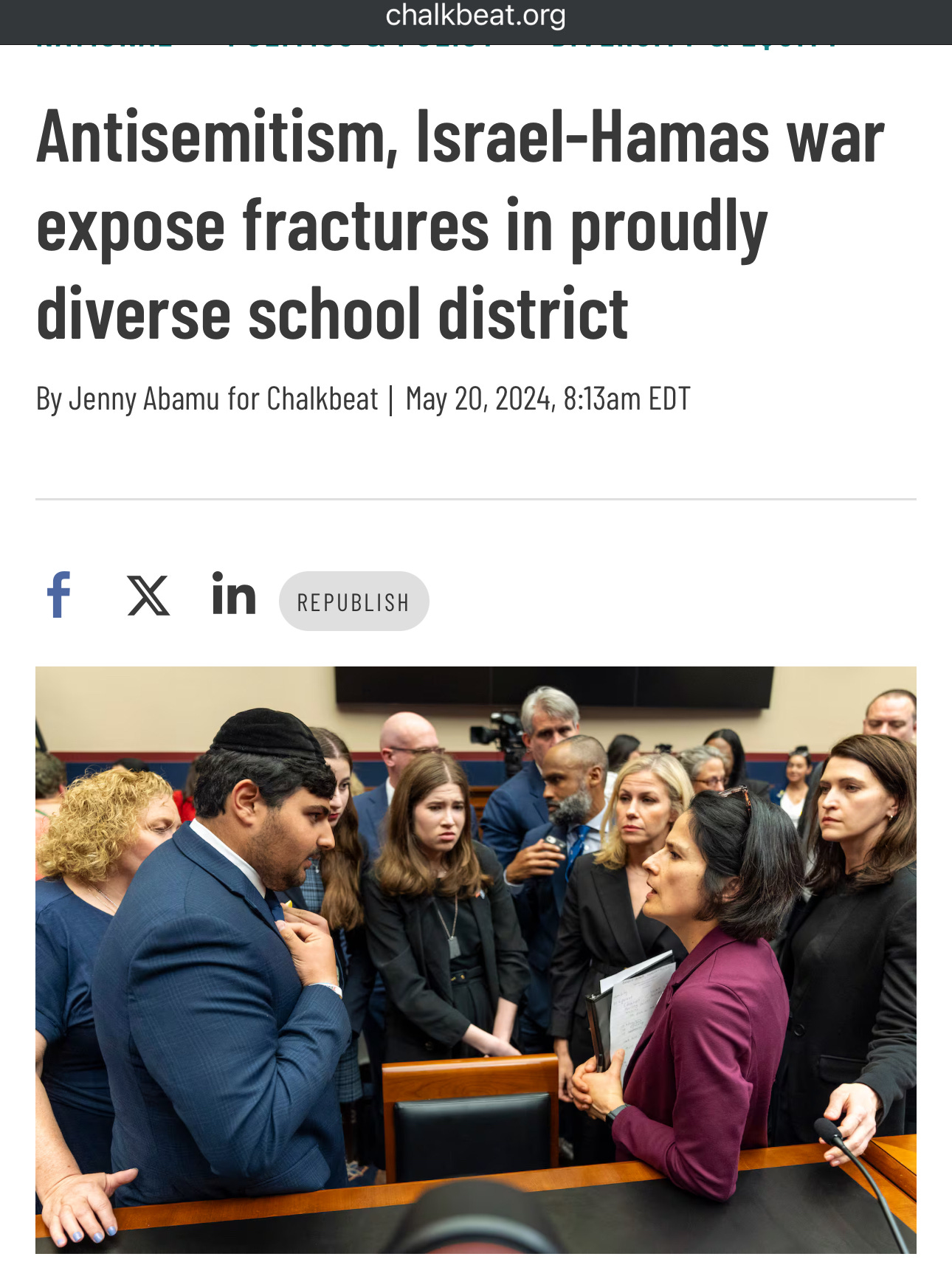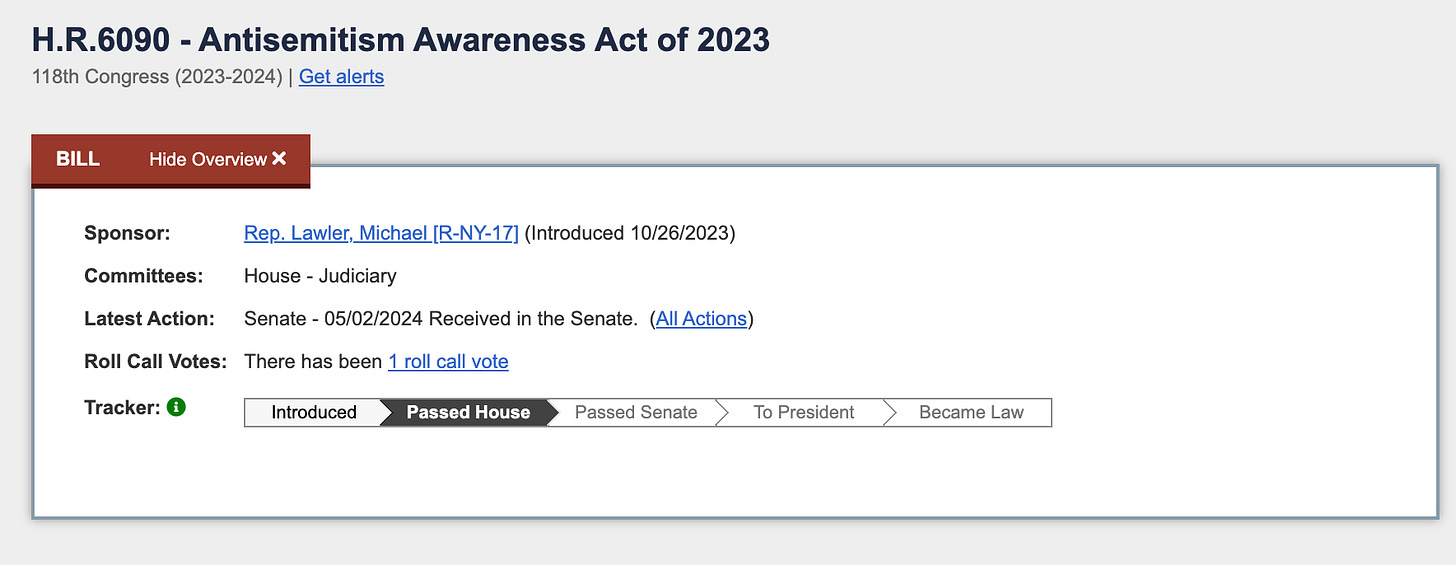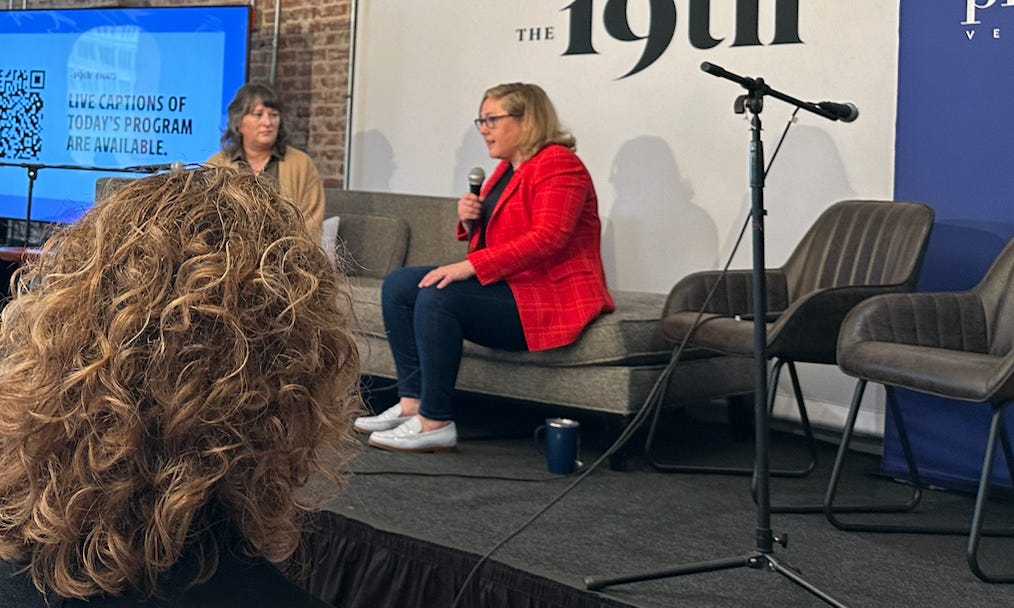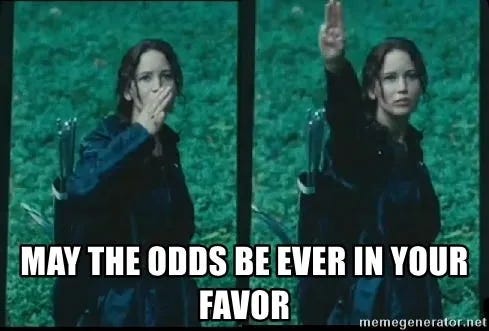How I Choose Stories, People are Rethinking Women's Issues this Election, and Lessons from the Jewish Community
In this issue, I explain why I chose to write about antisemitism, my takeaways from a Republican strategist, and how we have more in common than we realize.
I released my first news story in a while, and it was a doozy. I have a knack for picking topics I think will be quick to write, only to discover they are deeper than I ever imagined. When I say I ran through the gamut of emotions reporting this story, I mean it. But after being around the world as a diplomat for the State Department, it felt so good to be knocking on doors again, telling stories that matter to Americans.
I find every part of the reporting process requires a great sense of responsibility: choosing what to cover, which publication to pitch to, how to frame the story, who to interview, which adjectives are appropriate, what to leave in, what to take out, what was said vs. what was intended, who I have heard from, and who I am missing—all of it requires internal checks to ensure I am being fair to the topic under examination.
I also try to be conscious of the lack of trust in news, especially with communities that have historically been misunderstood. I feel an even greater weight to get the story right.
And, yes, being a mother makes me think about reporting differently. I consider the schools, the policies, the responses from officials, the victims, and realize that changes resulting from what I report have very real impacts on the world my children will grow up in. It's a job that doesn't pay enough for the work required, but as someone who has made more money in life without fulfillment, sometimes that doesn’t matter.
Why Write About Antisemitism?
Someone reached out after my story was published, upset. They didn’t understand why I focused on antisemitism when hate incidents for all groups are up, particularly Arab and Muslim communities. I thought this was a good opportunity to explain how I choose stories.
One. I consider newsworthiness first when deciding on a story. One way I determine that is possible impact through legislation (local or federal). I tend to keep an eye on bills and policies coming down the pipeline that could impact the way Americans live their lives, or bills that were just signed. Right now, a bill has passed the House that could change the way antisemitism is interpreted; some fear the bill could encroach on free speech. This is part of the discourse in the story I just did. Additionally, Congress is hosting several hearings on how educational leaders are dealing with antisemitism. This makes it a topic worth looking into.
Two. Supporting data. When I collected and reviewed police data from the area on hate/bias incidents, it was shocking. It supported testimony that this topic was a point of concern, particularly in a place like Montgomery County.
There are also a few limiting factors for me when reporting right now:
Three. I find that editors prefer to work with a freelancer they already know or know of to some extent. As a former education reporter, most of the editors I know focus on education, so I tend to cater my pitches to them.
Four. With two small children and limited childcare (still haven’t settled on a new babysitter), I’m not particularly inclined to pitch a story that requires me to travel too much. So most stories I pitch I can do within the DMV area. If officials from the county I live in happen to be called to testify in Congress, I’m definitely thinking of pitching that story.
Women are Politically Engaged
Lucky for me, there’s a lot going on in the DMV area.
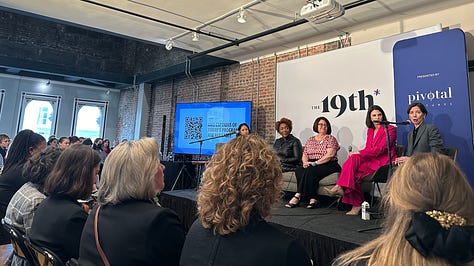
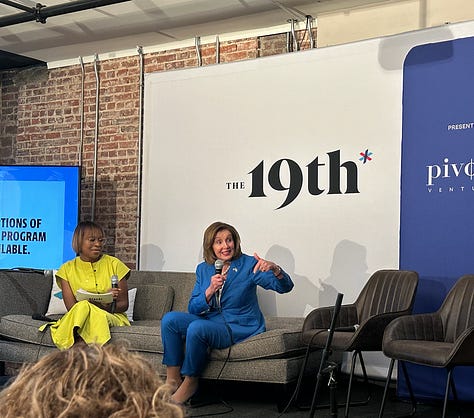
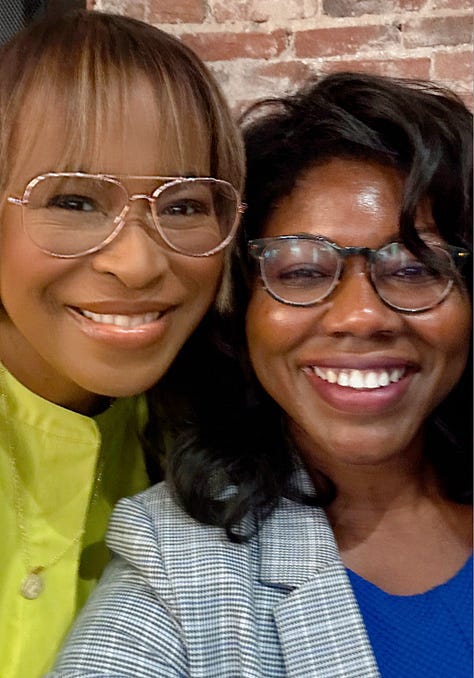
There’s Glamour, InStyle, and The 19th News. As the young folks say, I have been sleeping on The 19th, y'all. I recently attended a live event hosted by The 19th News in D.C. where women from different political walks of life gathered to discuss policy and democracy. For a publication that is relatively new, launching during the pandemic, I was impressed by the caliber of the crowd they drew. Finally, a publication where politically-obsessed women feel seen. Even the famous former Speaker of the House, Nancy Pelosi, was in attendance. (She showed up with a host of detail, but also basically said if people aren’t coming for you, are you even doing anything? Food for thought.)
Some interesting points they brought up about women's issues this election I wanted to highlight.
Republican strategist Sarah Longwell (who is rethinking her party loyalty) mentioned that she hosts focus groups with conservative women often. Here are two really interesting findings about the way many women in her groups perceive reproductive rights:
One. Multiple women in her focus groups told her statements such as, 'I am personally pro-life and believe in a woman’s right to choose.' A seemingly contradictory statement, but simplified to mean they personally wouldn’t want an abortion but think other women should be able to.
Two. Average women don’t spend day and night thinking about reproductive rights, but when they do think about it, the emotional response is gripping. Women get overwrought over this issue when it is brought to mind, so the Democrats' strategy of making this issue more salient may be more effective than some think.
Unrelated to reproductive rights, another interesting finding from her focus groups was that democracy is not a particularly pressing concern for many Americans. This contrasts with my experiences at numerous events with journalists, where democracy is often a headline issue. However, her focus groups revealed that most people have only abstract ideas about what democracy is or means.
When she delved deeper, she found that people's feelings about democracy were closely linked to their feelings about America.
If they perceived America as generally a mess, they had less trust in democratic institutions, leading to beliefs in stolen elections and similar sentiments. Conversely, if they thought America was a good place, they had more trust in democratic institutions.
This aligns with the rhetoric from both President Biden and former President Donald Trump. Biden's message focuses on restoring faith in America and portraying it as a good and hopeful place, while Trump frequently criticizes how broken the country is.
She notes that conservatives who voted for Trump before but aren’t inclined to do so again are people who generally think America is a good place and have faith in the institutions. Hence, the January 6th attack on the Capitol was the straw that broke the camel's back for many of them. Just interesting food for thought.
What I am reading?
I spent a lot of time reading my story over and over again in the editing process, and I feel like I learned a lot about the Jewish experience in America.
I learned about the depth of the American Jewish community’s connection to Israel. This was something I knew on the surface, but never understood how deep it was. One woman described it as her last refuge, if America were to suddenly turn on them like Germany did.
As a Black woman, I feel that it is easy for me to resonate with the experiences faced by other minority groups in America, often without needing much explanation.
For example, for this story, Jewish people I interviewed talked about their frustrations with others who didn’t understand why something they said or did would be hurtful. Microaggressions, I get that. They talked about their right as a group to define the boundaries of antisemitism. Who gets to decide? I also understand this. They talked about the feeling when someone does something horrible and you hope it’s not someone who looks and identifies as you do. Very relatable.
I knew I was diving into a topic lots of people were passionate about for different reasons. I even had to calm people down who figuratively seemed ready to fight before I could even get a question in. And I understand. Tensions are high for good reason. But I hope my words serve as a reminder that in many ways, we have more in common than we realize.
And if you have some time, I encourage you to read my article and share it.
Subscribe and Share
I hope you found this newsletter helpful and engaging. Please share with any friends or family you think would be interested and feel free to buy me a coffee by subscribing if you got some use out of it.
Follow me on Instagram too!


